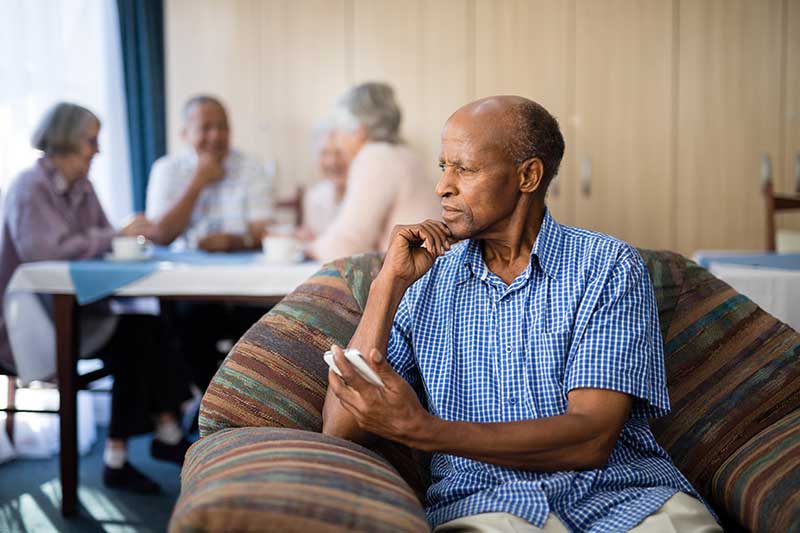Mental health is an important part of total well-being at any age, but it is especially important for older persons, who frequently confront particular problems that affect their emotional and psychological health. Depression, anxiety, and loneliness are especially widespread among the elderly, owing to causes such as failing health, death of loved ones, and decreased social connections. Addressing these difficulties entails more than just treating symptoms; we must also improve our seniors’ quality of life.
The prevalence and impact of mental health issues in the elderly
People often go through big life changes as they get older, which can lead to mental health difficulties. Retirement, the death of friends and relatives, limited mobility, and other health issues can all add to emotions of helplessness, isolation, and grief. It is critical to acknowledge that these are not simply typical aspects of aging; they are severe difficulties that require attention and care.
Strategies for Effective Treatment and Counseling
Psychotherapy is an essential tool for treating mental health difficulties in the elderly. Therapists can assist seniors in processing their feelings of loss and change, as well as addressing their aging-related worries and developing coping techniques. Cognitive Behavioral Therapy (CBT) has been particularly successful in treating depression and anxiety by challenging negative beliefs and behaviors and replacing them with more positive, realistic ones.
Medication Management
While therapy is useful, certain types of depression and anxiety may necessitate medication assistance. However, due to the sensitivity of older persons to drugs, these treatments must be managed with caution. A geriatric psychiatrist can create medication plans that account for potential side effects and combinations with other medications.
Community Engagement
Social isolation contributes significantly to mental health issues in the elderly. Community centers, religious organizations, and other social groups can all play an important role in helping elders maintain social relationships. Group workouts, book groups, and handicraft workshops not only keep the elderly entertained, but also give important social support.
Leveraging Technology
The advancement of technology creates new opportunities to combat loneliness and isolation among the elderly. Seniors who are physically unable to leave their homes can engage with their family, friends, and peers through virtual meet-ups, online games, and social media. Technologies like video calls can dramatically improve a senior’s daily life by offering a much-needed sense of connection.
The Role of Family and Caregivers
Family members and caregivers are frequently on the front lines in monitoring the mental health of their senior loved ones. They can assist identify early signs of sadness, anxiety, or loneliness and offer emotional support or encourage professional help. Open communication and regular visits (whether in-person or virtual) can work wonders for an elderly person’s mental health.
Improving mental health and emotional well-being in the elderly is critical to their overall quality of life. We can assist our older citizens live with dignity and happiness by treating depression, anxiety, and loneliness through therapy, counseling, community participation, and the appropriate use of technology. It’s not only about adding years to their lives; it’s also about giving them life.
